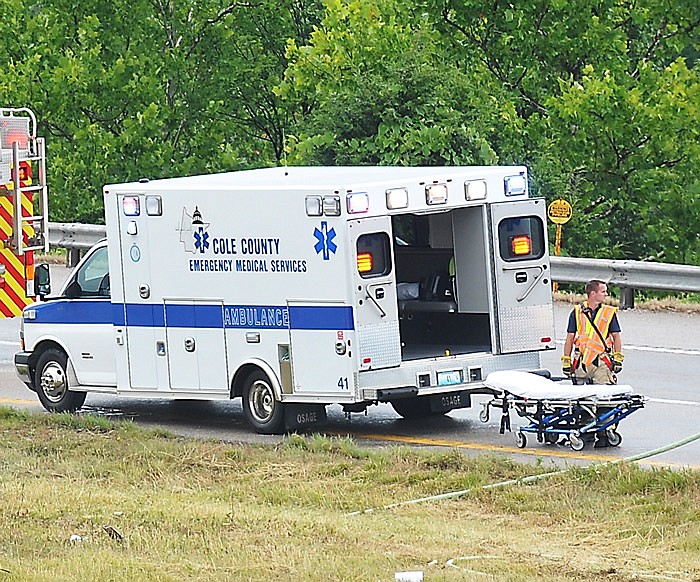As they finished three days of budget discussions with county department heads and elected officials, the Cole County Commission approved spending money budgeted for Cole County Emergency Medical Services in 2020.
On a 2-1 vote, the commission approved purchasing three ambulances from Demers Ambulances, which is based in Canada and has distributors in the United States. The cost for each ambulance is $192,370, for a total of $577,110.
Western District Commissioner Kris Scheperle and Eastern District Commissioner Jeff Hoelscher approved the purchase while Presiding Commissioner Sam Bushman voted against - saying he would have liked to have Osage Ambulance Company in Linn be able to bid for the ambulances.
Last year, the commission voted to purchase ambulances from Demers as well.
EMS Chief Matt Lindewirth said it would take five months for the ambulances to be put together. After they arrive in Cole County, it will take another six weeks for crews to complete the outfitting of the ambulances to get them into service.
Lindewirth said EMS has had minimal maintenance issues since purchasing the two ambulances from Demers last year.
The three new ambulances will bring the service to 14 ambulances, with eight in service daily.
These ambulances will replace older ambulances scheduled to be rotated out of service, keeping the service at 14 ambulances total, Lindewirth said. The service already this year replaced two ambulances that were damaged while housed at Braun Storage on Renns Lake Road which suffered a direct hit from the May 22 tornado.
Lindewirth and commissioners also discussed other EMS budget matters Thursday, including adding a logistics officer for the service. This person would make sure ambulance fleet maintenance issues are addressed and be in charge of ordering and tracking medical supplies.
County Auditor Kristen Berhorst has the position in her proposed budget with a salary of $61,500.
Commissioners discussed continuing to fund the efforts of a pre-trial screening program designed to help judges determine which defendants should be bonded and supervised rather than jailed before a trial. Court officials said this has reduced costs and the number of prisoners housed in the Cole County Jail.
Pre-trial Coordinator Richard Lee said there currently are 140 people in the program, which has a staff of two full-time employees and one part-time employee to oversee the people involved in these cases.
Due to new state Supreme Court rules requiring faster times to file reports, Lee said, they need help to keep filing reports or they'll have to send more people to jail.
Lee has asked the commission to add an administrative assistant to the pre-trial screening program. Lee and Chief Court Marshall Donnie Schulte are also asking the commission to consider adjusting salaries of the three current deputy marshals since they are performing added duties, along with securing courtrooms and the courthouse, to help keep the program running.
Housing the 140 people in jail would have cost the county $2 million, and 60 of them would have had to be housed in other locations, Western District Commissioner Kris Scheperle said.
Since the start of pre-trial screening in 2013, the program has saved the county 138,581 bed days, Lee said. Using a calculation of $19, the reimbursement the county gets from the state for housing a prisoner, Lee said the county has realized savings of more than $2.6 million. Adding in the money the county gets from housing federal prisoners and prisoners from other counties, he estimates the county has saved more than $9 million.
Scheperle pointed out the $9 million figure, which is reserved in the county's law enforcement fund, has actually built up over several years and has to be kept at a certain level in case of emergencies. If the jail were to have been hit by the May 22 tornado, for example, they would have had to find a place to house prisoners while the jail was repaired, he noted. That fund has been used for several unplanned expenses, such as the new body scanner the commission approved for the jail this week at a cost of $166,000.
Berhorst noted there had been talks in recent years of opening the interstitial floor of the jail. Located below the jail floor that is currently open, the still-empty interstitial floor has 27,000 square feet above the jail parking garage along East McCarty Street, across from Jefferson City Hall and the Jefferson City Police Department. It was added for future growth. Berhorst said if they did decide to do something with that floor, they would need to have the money in reserves to pay for it.
Next week, the commissioners are scheduled to talk among themselves about the budget.
The budget is scheduled to be approved Jan. 7.

